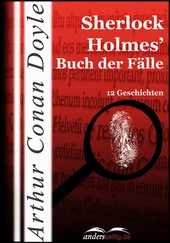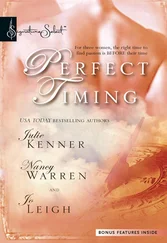Arthur Warren - London Days - A Book of Reminiscences
Здесь есть возможность читать онлайн «Arthur Warren - London Days - A Book of Reminiscences» — ознакомительный отрывок электронной книги совершенно бесплатно, а после прочтения отрывка купить полную версию. В некоторых случаях можно слушать аудио, скачать через торрент в формате fb2 и присутствует краткое содержание. Жанр: Биографии и Мемуары, История, foreign_antique, foreign_prose, на английском языке. Описание произведения, (предисловие) а так же отзывы посетителей доступны на портале библиотеки ЛибКат.
- Название:London Days: A Book of Reminiscences
- Автор:
- Жанр:
- Год:неизвестен
- ISBN:нет данных
- Рейтинг книги:5 / 5. Голосов: 1
-
Избранное:Добавить в избранное
- Отзывы:
-
Ваша оценка:
- 100
- 1
- 2
- 3
- 4
- 5
London Days: A Book of Reminiscences: краткое содержание, описание и аннотация
Предлагаем к чтению аннотацию, описание, краткое содержание или предисловие (зависит от того, что написал сам автор книги «London Days: A Book of Reminiscences»). Если вы не нашли необходимую информацию о книге — напишите в комментариях, мы постараемся отыскать её.
London Days: A Book of Reminiscences — читать онлайн ознакомительный отрывок
Ниже представлен текст книги, разбитый по страницам. Система сохранения места последней прочитанной страницы, позволяет с удобством читать онлайн бесплатно книгу «London Days: A Book of Reminiscences», без необходимости каждый раз заново искать на чём Вы остановились. Поставьте закладку, и сможете в любой момент перейти на страницу, на которой закончили чтение.
Интервал:
Закладка:
My first editor was George Parsons Lathrop, of the Boston Courier . He was a son-in-law of Nathaniel Hawthorne, and he achieved the honour of editing my copy by the alacrity with which he published it for nothing. As the suggestion was my own the acceptance of non-compensated work was entirely fair. If his paper could stand it, I could. I wanted practise, and Lathrop wanted copy. He was perfectly willing that I should practise in his columns. I did n't know him from Adam, but had written to him enclosing a "London Letter" which solicited his acceptance on gratuitous terms. Beneath my generosity was a design. Not only did I need practice but I wanted to be known as the London Correspondent of an American paper, in order to have the entrée at theatres, concerts, political gatherings, and other public functions. After sufficient practice with Lathrop, I would endeavour to sell copy in other quarters. The plan succeeded.
When the period of gratuitous service had stretched far enough, a Boston journal of much interest and overwhelming respectability, deigned graciously to pay five dollars a letter for my London "stuff." The magnitude of this offer did not shock me, but five dollars meant a sovereign, and the addition of twenty shillings to one's weekly income suggested wealth to a young scribbler in London. Three or four letters had been despatched when, one evening, an expensive acquaintance who had rooms above mine, near Queen Square, dropped in at my snug chambers and spun a yarn. He had "seen Leighton, you know, President of the Royal Academy, good sort, dev'lish good fellow. What do you suppose he 's done now? Taken up a sculptor in Paris, French of course, poor as I am, poorer, if it 's possible to be poorer than I am, and has had a piece of the chap's work sent over here for exhibit at the Academy. Sculptor could n't send it. No money. Not even a studio. Devilled for years in other men's studios. Leighton saw, says fellow must become known in London. Got artist chaps to pay expenses of sending over. Good fellow, Leighton. Go see it, you! Press Day—Royal Academy—next week. Forgot French chap's name!"
This brought to my recollection the fact that in Paris, the previous Easter, when haunting Bohemia with a pack of student friends, I had heard of a needy sculptor who was doing things of strange power, and was hard up because he would not work in accepted forms, but persisted in carving things that nobody wanted. And who, in those days, would buy sculpture from an "artist unknown"? My friends promised that I should meet the man, but I was called away from Paris before this could be arranged.
I went to the Royal Academy on Press Day, and saw the specimen of the "new man's" work. I was quite alone with it. One is always sure to be alone in the Statuary Room of the Royal Academy. An article came out of the silence. It went to my five-dollar editor. He responded with this note:
"Sorry we can't pay for any more of your letters. We printed the last one, but, really, we don't want articles about unknown sculptors, especially French ones."
The unknown sculptor, whose name, of course, I gave, was Auguste Rodin!
I subsequently heard that the article was the first about Rodin to be published in America, and that an artist and fellow townsman of mine, Henry Bacon, then in Paris, brought it to his attention. Months afterward, having followed me half around the world, there arrived by post a big and battered parcel. It contained a photograph of the sculpture I had seen, the bust of Rodin's "St. John Preaching", and the large mount bore Auguste Rodin's autograph with a grateful message to me. I had the trophy framed and hung over the fireplace in my chambers, and there, whether the fireplace were in England or America, it has hung ever since. If I were the first to give Auguste Rodin public recognition in my country, he was the first anywhere to acknowledge my stumbling work.
Vocation was pressing its claims more heavily than usual about that time and there was little opportunity to pursue a project I had formed for writing a series of articles upon "The London of Disraeli." Everybody in pendom had written of "Dickens' London", and "Thackeray's London", and after "Endymion" had made its loudly trumpeted appearance, it occurred to me that Disraeli had a London which the makers of articles had not seized upon and which would yield "material" for interesting copy. This, if well illustrated, might appeal to some magazine editor in America and subsequently become a book. At the same time I was gathering notes and impressions for a series of papers which might be called "Odd Corners of London." For things of this kind America seemed to promise an especially good market, and I believed that I could supply it fairly well. One thing after another delayed this little plan. Vocation was taking up more time and at higher pressure than is compatible with hobby-riding. It has a habit of doing so. Then a visit to America intervened, for the purpose of spending my twenty-first birthday, and the following five or six months, at home. The return to England was followed by a rush of work in the City, and this by an illness of some weeks' duration. All the while the Disraeli subject lay untouched until, one day in 1882, I met a character in a Disraeli novel, who was much more of a character outside it.
It was a day of powerful rain. The Pullman Company were to run their first train in England over the Brighton line from Victoria Station. They had invited a regiment of celebrities and a few odd sticks. Among the latter I was included by some official of my acquaintance who thought I might write an article for some overseas paper. Taking a place in a smoking car I was solitary for but a minute, when George Augustus Sala entered hurriedly and plumped himself down beside me, saying: "What a beastly, blowy, wet morning!"
"The worst since Noah's time," said I.
"If this train gets to Brighton and returns through the flood, it will be another case not only of pull man, but also of pull devil, pull baker," said Sala.
"There 's copy for you," said I.
"Oh, are you a journalist?" asked Sala.
"I 'm hoping to be. It's an aspiration."
"Desperation, more likely," he said. "Don't do it, young man, not if there 's a good crossing to sweep in your neighbourhood. Journalism is the worst trade in the world."
"Every man says that of his own profession," I replied.
"Profession be hanged! What do we profess? We stain paper, and look as wise as owls, and know a damned sight more than we ever tell. Most of us bleat in our folds like sheep; few of us have the chance to go about the world and see things, and even they work like slaves to entertain the public while their owners take the profits. The worst trade in the world, sir; work harder, know more than any other—about human nature, anyhow—and get less for it than any other; what we write is forgotten the day after it's printed, and when we can't grind out any more, when they 've squeezed our brains dry, we 're thrown on the dust-heap to be buried by a benevolent association. Don't go into journalism unless you own the paper! That's where the profits are—big circulation and advertising revenue, politics and peerages! I 'm too old for aiming at ownership now; besides, I 'm a writer, not a screw! Journalism be hanged. If I 'd been a chef in a millionaire's palace, or a fashionable hotel, I 'd have done better."
Possibly. At any rate he would have been the prince of chefs as he was "the prince of journalists", or was it the king the public called him? He was supposed to earn fabulous sums with his pen. If he earned them he spent them, for he left nothing when he had "gone west." He was an artist in cookery, had a knowing taste in wines; he had been everywhere, seen everything, knew everybody, and on the shortest possible notice could write an article upon anything or nothing. He had a flaming face, small, glittering eyes, a build and frontage not unlike that of Pierpont Morgan of later fame, and a reputation for wit and story-telling. He had also a reputation for geniality. He was as genial as a thunderstorm. His rumblings and clatters might pass quite harmless, or sear you with a flash. His familiar signature was "G.A.S."
Читать дальшеИнтервал:
Закладка:
Похожие книги на «London Days: A Book of Reminiscences»
Представляем Вашему вниманию похожие книги на «London Days: A Book of Reminiscences» списком для выбора. Мы отобрали схожую по названию и смыслу литературу в надежде предоставить читателям больше вариантов отыскать новые, интересные, ещё непрочитанные произведения.
Обсуждение, отзывы о книге «London Days: A Book of Reminiscences» и просто собственные мнения читателей. Оставьте ваши комментарии, напишите, что Вы думаете о произведении, его смысле или главных героях. Укажите что конкретно понравилось, а что нет, и почему Вы так считаете.












